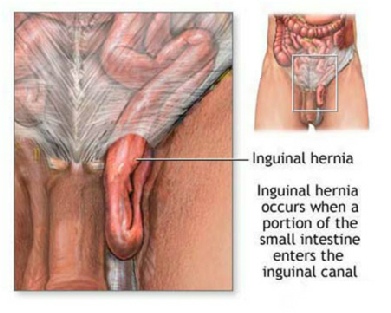 CONTACT US
CONTACT US
Dr Nico Coetzee
Dr Nico Coetzee
Dr Coetzee specializes in Laparoscopic and Open surgery including certain areas of Surgical Oncology
Dr Coetzee specializes in Laparoscopic and Open surgery including certain areas of Surgical Oncology
Dr Coetzee joined the Medi Clinic group at Somerset West in 2009..Previously active and involved in the evolution of Laparoscopic Surgery as a participant and as an educator at Tygerberg Hospital in the Western Cape.
Dr Nico Coetzee
Dr Coetzee specializes in Laparoscopic and Open surgery including certain areas of Surgical Oncology
Dr Nico Coetzee
Dr Coetzee joined the Medi Clinic group at Somerset West in 2009..Previously active and involved in the evolution of Laparoscopic Surgery as a participant and as an educator at Tygerberg Hospital in the Western Cape.
Dr Coetzee joined the Medi Clinic group at Somerset West in 2009..Previously active and involved in the evolution of Laparoscopic Surgery as a participant and as an educator at Tygerberg Hospital in the Western Cape.
Dr Nico Coetzee
INGUINAL HERNIA REPAIR
What is a hernia?
A hernia is usually a sac formed by the lining of the abdominal cavity (peritoneum). The sac comes through a hole or weak area in the fascia, the strong layer of the abdominal wall that surrounds the muscle.
The types of hernias are based on where they occur:
- Femoral hernia appears as a bulge in the upper thigh. This type is more common in women than men.
- Hiatal hernia occurs in the upper part of the stomach.
- Incisional hernia can occur through a scar if you have had abdominal surgery in the past .
- Inguinal hernia appears as a bulge in the groin. This type is more common in men than women. The bulge may go all the way down into the scrotum.
- Umbilical hernia appears as a bulge around the belly button. It occurs when the muscle around the navel doesn’t close completely.
Alternative Names: Hernia – inguinal; inguinal hernia; Rupture; Strangulation; Incarceration
Causes, Incidence, And Risk Factors
Usually, there is no obvious cause of a hernia. Sometimes hernias occur with heavy lifting. Hernias may be present at birth, but the bulging may not be noticeable until later in life. Some patients may have a family history of hernias. Hernias can be seen in infants and children. This can happen when the lining around the abdominal organs does not close properly before birth. About 5 out of 100 children have inguinal hernias (more boys than girls). Some children may not have symptoms until they are adults.
Any activity or medical problem that increases pressure on the abdominal wall tissue and muscles may lead to a hernia, including:
Chronic constipation, straining to have bowel movements
Chronic cough
Cystic fibrosis
Enlarged prostate, straining to urinate
Extra weight
Heavy lifting
Poor nutrition
Smoking
Overexertion
Undescended testicles
Symptoms
Most often there are no symptoms. However, sometimes there may be discomfort or pain. The discomfort may be worse when you stand, strain, or lift heavy objects.
Although a hernia may only cause mild discomfort, it may get bigger and strangulate. This means that the tissue is stuck inside the hole and its blood supply has been cut off. If this occurs, you will need urgent surgery.
Signs And Tests
A doctor can confirm the presence of a hernia during a physical exam. The mass may increase in size when coughing, bending, lifting, or straining. The hernia (bulge) may not be obvious in infants and children, except when the child is crying or coughing. In some cases, an ultrasound may be needed to look for a hernia.
Treatment
Surgery is the only treatment that can permanently fix a hernia. However, smaller hernias with no symptoms can sometimes be watched. Surgery may have more risk for patients with serious medical problems.
Surgery will usually be used for hernias that are getting larger or are painful. Surgery secures the weakened abdominal wall tissue (fascia) and will close any holes. Today, most hernias are closed with cloth patches to plug up the holes.
An umbilical hernia that fails to heal on its own by the time your child is 5 years old may be repaired.
Emergency surgery is sometimes needed. The sac containing the intestine or other tissue may become stuck in the hole in the abdominal wall. If it cannot be pushed back through, this can lead to a strangulated loop of intestine. If left untreated, this portion of the intestine dies because it loses its blood supply.
Instead of open surgery, some hernias can be repaired using a laparoscope (camera). The advantages of using a camera include small surgical cuts, faster recovery, and less pain after the procedure.
Expectations (Prognosis)
The outcome is usually good with treatment. Recurrence is rare (1-
Complications
In rare cases, inguinal hernia repair can damage structures involved in the function of a man’s testicles.
Another risk of hernia surgery is nerve damage, which can lead to numbness in the groin area.
The biggest risk of hernia surgery is another hernia, which may occur years later.
When should you call your doctor?
Call your doctor right away if:
- You have a painful hernia and the contents cannot be pushed back into the abdomen using gentle pressure
- You develop nausea, vomiting, or a fever along with a painful hernia
- You have a hernia that becomes red, purple, dark, or discolored
- You have groin pain, swelling, or a bulge
- You have a bulge or swelling in the groin or belly button, or that is associated with a previous surgical cut.
Prevention
Use proper lifting techniques.
Lose weight if you are overweight.
Relieve or avoid constipation by eating plenty of fiber, drinking lots of fluid, going to the bathroom as soon as you have the urge, and exercising regularly.
Men should see their health care provider if they strain with urination. This may be a symptom of an enlarged prostate.
Please also check the laparoscopic inguinal hernia repair information.


